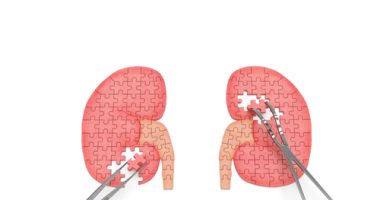Phase 2/3 Study of Bardoxolone Methyl in Treating Alport Syndrome-related CKD Gets Underway

Screening has begun in people with chronic kidney disease (CKD) caused by Alport syndrome, who are looking to take part in a Phase 2/3 clinical trial evaluating the efficacy of bardoxolone methyl, a therapy being developed by Reata Pharmaceuticals.
The two-part study, called CARDINAL (NCT03019185) will assess the safety, tolerability, and effectiveness of oral bardoxolone methyl in slowing, halting, and possibly reversing a decline in renal function in Alport patients. Bardoxolone methyl has demonstrated effectiveness in previous clinical trials in other chronic kidney disease patients.
“Based on our extensive clinical experience with bardoxolone methyl in patients with diabetic CKD, as well as in our ongoing Phase 2 and Phase 3 trials for bardoxolone in other orphan diseases, we hope to demonstrate that bardoxolone methyl can serve as a meaningful new treatment option for patients with Alport syndrome,” Warren Huff, Reata’s chief executive officer and president, said in a press release.
Bardoxolone methyl is an antioxidant inflammation modulator (AIM) designed to activate Nrf2, a transcription factor that restores mitochondrial function (organelles essential to cell energy production), reduces oxidative stress (an imbalance that damages cells), and resolves inflammation.
In total, 210 Alport patients, ages 12 to 60, with estimated glomerular filtration rate (eGFR) values between 30 and 90 mL/min/1.73 m2 will be enrolled. eGFR values cover a range — from mild to severe — of decline from normal kidney function. (Trial sites across the U.S., Canada, Europe and Australia are currently enrolling eligible patients; more information is available on the study’s clinical trials.gov webpage.)
The Phase 2 portion will be open-label (no placebo group) and will evaluate eGFR changes in 30 patients at 12 weeks of treatment. Patients will be given escalating doses up to either 20 mg or 30 mg of bardoxolone methyl once daily. Results are expected by year’s end.
The Phase 3 part will be double-blind, randomized, and placebo-controlled, and will enroll up to 180 patients, who will be treated with either bardoxolone methyl or a placebo. It aims to evaluate, as its primary goal, the change from baseline in eGFR in patients after 48 weeks of treatment compared to placebo. Escalating doses will again be used, with treated patients starting at 5 mg once daily before moving to 10 mg once daily and then to 20 mg and, possibly, 30 mg daily, based on baseline proteinuria (the presence of excessive proteins in urine) when patients are randomized to treatment or placebo groups.
Key secondary endpoints in this possible pivotal trial are the change from baseline in eGFR four weeks after stopping the drug after one or two years of treatment. One year off-treatment data may support accelerated approval of bardoxolone methyl in treating kidney decline in Alport patients by the U.S. Food and Drug Administration, and data collected at two years could support full FDA approval, Reata said in the release.
The FDA suggested in November that the company should conduct a single pivotal trial with a retained eGFR endpoint as a possible basis for approval.
“As there are currently no FDA approved treatments for those with Alport Syndrome, the Alport Syndrome Foundation encourages the development of therapies that will delay or prevent the need for dialysis and transplantation. We are grateful to Reata for engaging us in this process and for recognizing the crucial role of the patient perspective,” Gina Parziale, executive director of the Alport Syndrome Foundation, said in the release.







Comments